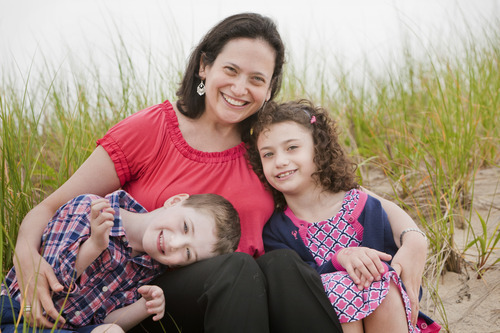Special needs kids, getting help.

Joanna Dreifus founder of Special Kids NYC provides consulting to NYC parents of children with special needs on all topics, ranging from Early Intervention to preschool & kindergarten applications. We at Motherburg had a few questions that can help parents who may be new to the in’s and out’s of providing the best care for your special needs child.
MB: Once you realize your baby/toddler may have special needs what is one of the first steps a parent should take?
Special Kids NYC: The first step you should take if you suspect your baby/toddler may have special needs or even just a delay (such as not crawling or walking, or not babbling or talking) is to talk to your pediatrician. Don’t be afraid to bring this up, no matter how young your child is, or how much well-meaning friends or family tell you “don’t worry.” Your pediatrician may be able to assure you that your child’s development is within the “typical” range (very often, it is), or may tell you that they suspect a delay, in which case they will refer you for an Early Intervention evaluation. Caveat: Even if your pediatrician tells you everything is OK, if you feel very strongly that there is still a problem (especially compared to the development of all of your child’s peers and/or older sibling(s)), you still have the right to request a referral for evaluation. It is better to listen to your gut/intuition in some cases.
MB: How as a parent can a parent deal with social environments with their child?
Special Kids NYC: Parents of *all* children—typically developing or not—are bound to have some exasperating or embarrassing moments when out in public with their toddler or preschooler (supermarket meltdowns, anyone?). But if your child has special needs such as autism spectrum disorder or sensory processing disorder, they may be “triggered” even more easily in some situations, including at music classes, birthday parties, or playgroups. If people are staring or rolling their eyes, try to ignore it. They don’t “get it”; they haven’t walked in your shoes. Also, it is normal to experience some discomfort (or even to be jealous of other parents) when your child stands out among a crowd of typically-developing children. My best pieces of advice? 1) Remember your child’s strengths, and that he/she is more than their diagnosis or “label.” Enjoy all the special moments that you can—even if they are different (or happen on a later timetable) than other children’s. 2) Try to meet other parents who have children with developmental delays (for example, in a support group). You are part of a special club, and can give each other much-needed support and friendship—not to mention a good laugh.

Leave a comment
Comments will be approved before showing up.